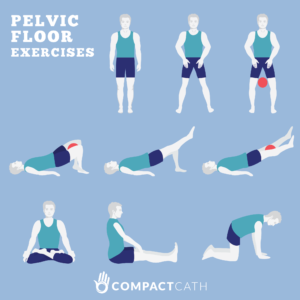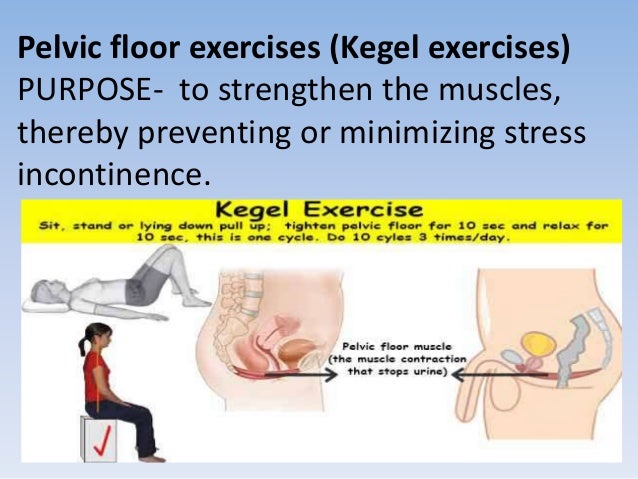There are both surgical and non surgical natural treatment options available for urinary retention in both men and women.
Pelvic floor exercises for urinary retention.
By mayo clinic staff.
Here s a step by step guide to doing kegel exercises correctly.
It is very important to address muscle and structural imbalances which could impede proper blood flow and mobility and motility of the pelvic floor organs.
Obstruction of stool is a common cause of incontinence and retention.
Kegel exercises strengthen the pelvic floor muscles which support the uterus bladder small intestine and rectum.
Kegels or pelvic floor muscle exercises.
You can do kegel exercises also known as pelvic.
Kegel exercises can help.
Do pelvic floor muscle exercises.
You should feel a clench inside the pelvic region that is holding it in.
She created the 30 day bladder fix a pelvic floor strengthening dvd that combines seated and lying down exercises to help control incontinence.
As a first step identify the pelvic floor muscles by stopping urination midstream.
Kegel exercises can prevent or control urinary incontinence and other pelvic floor problems.
Pelvic floor therapy with an emphasis on manual therapy and myofascial release are a very important option when considering treatment for urinary retention.
You can help prevent urinary retention caused by constipation by.
Kegel exercises can strengthen your pelvic floor strength improve bladder function and possibly even completely eliminate leakage.
Pelvic floor physical therapy is an option that is non invasive and a relatively quick treatment.
Uptraining or strengthening is used for patients with bladder overactivity prolapse and incontinence.
Both men and women can benefit from pelvic floor muscle exercises.
Pelvic floor muscle exercises also called kegel exercises help the nerves and muscles that you use to empty your bladder work better.
Make dietary and lifestyle modifications.
Pelvic floor exercises also called kegel exercises can make the pelvic floor muscles stronger and improve bladder and bowel function.
Strengthening the muscles of the pelvic floor can reduce urinary incontinence by as much as 90 percent.
Incomplete bladder emptying is also called urinary retention and occurs when the muscles that control the flow of urine are unable to direct when to empty the bladder.
Physical therapy can help you gain control over your urinary retention symptoms.
Pelvic floor therapy for urinary retention consists of a.
Bladder emptying exercises practice completely emptying your bladder when it is time to use the bathroom.
Pelvic floor training is often used to strengthen but also relax the pelvic floor.
Maintaining a healthy elimination pattern prevents stool from obstructing the stream of urine.



























